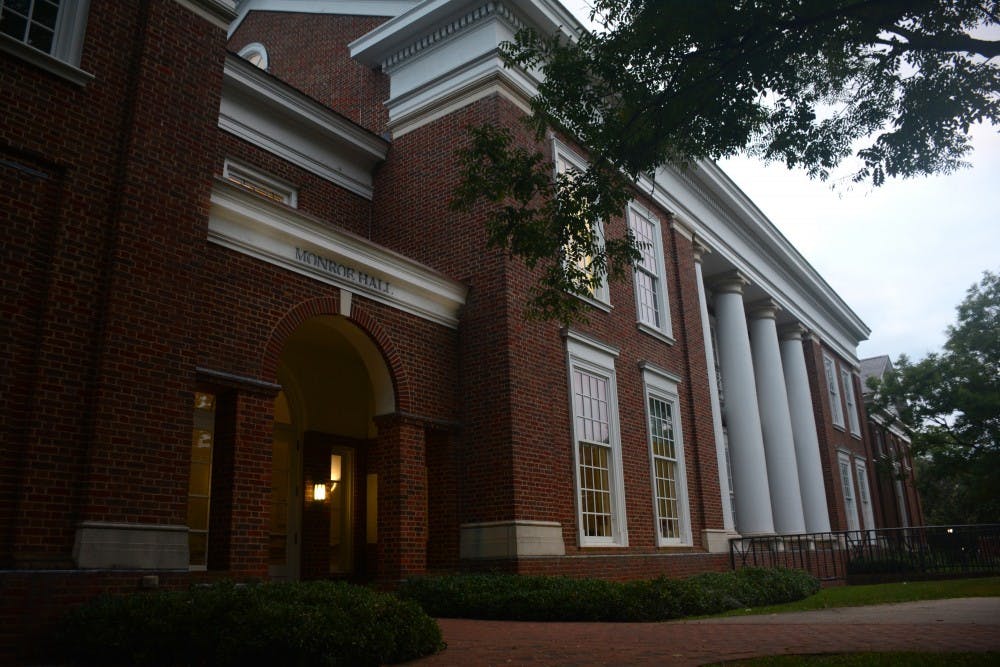If first-year me saw this column’s title, he would disagree. However, a year after completing my last general education requirements for the College of Arts and Sciences, those classes have proven useful in my personal and academic development. Thus, I now argue the merits of keeping these requirements, especially in regard to recent calls to abolish them by columnists Bryce Wyles and Max Bresticker.
By far the greatest benefit of taking general education requirements is the ability to experience academic disciplines that you would not otherwise be exposed to. General education requirements push students to take classes outside of their normal areas of academic interest. For example, quantitative requirements in the New Curriculum make it nearly impossible for a student who absolutely hates math to avoid taking a class that involves at least some Calculus.
The exposure to different subject areas teaches students new ways of thinking and communicating, benefitting their development academically and professionally. By fleshing out the topical variety found in a liberal arts education, students become more adaptable, find new passions and challenge their problem-solving acumen in an unfamiliar landscape. These long-term benefits are why many schools, including the University, have emphasized a liberal arts education as the best model to follow and why these requirements are therefore purposeful — not arbitrary.
Further, general education requirements create opportunities for cross-disciplinary learning on themes that normal departmental classes will not, including anti-racism education and classes that teach students how to address pressing social and ethical dilemmas. Fortunately, the University offers these classes in the College through the Engagements, and while many first years may have frustrations about some classes, the Engagements have massive potential to form an essential liberal arts experience.
Without general education requirements, that student who hates math may continue avoiding it, sticking with familiar topics. While many students are self-motivated enough to seek classes in different subject areas — with or without a requirement — many likely need the extra push. Given the benefits of an education with a broad scope, the University has a responsibility to use tough love to ensure students make the right decisions for themselves — even if students aren’t happy about it in the short-term.
Students also face pressures to take certain classes because they think they might make for a more competitive resume. However, the truth behind this logic is limited. Studies have found that the best job outcomes correlate with which University one attends and not the classes taken, and have demonstrated that a liberal arts education has a high return on investment. In fact, many companies actively hire students on the basis of diverse educational backgrounds, valuing the liberal arts model. General education requirements ensure that all students are exposed to different disciplines and career paths, which discourages the treatment of higher education merely as advanced vocational training.
While critics may argue that these requirements are redundant or tedious after high school requirements, I believe this claim is misguided. It is nearly impossible to compare high school classes to those at the college level. University classes are far more intense and in-depth, often taught by experts in the field — the same cannot be said of the average high school class. Given this, I find arguments about the inequities in the availability of advanced placement credits to miss the point that students ought to take a varied curriculum regardless. General education requirements can level this divide, as they ensure no student receives an education lacking in a discipline that others may have had exposure to in high school. Of course, that is not to say that the inequities in the availability of advanced placement credits is not an issue — it is. However, these inequities would be exacerbated at worst and unaffected at best in abolishing these requirements.
Further, complaints about “academic freedom” are also misguided. The very notion of academic freedom serves to ensure students can pursue whatever discipline and interest they want — general education requirements do not infringe upon this. Rather, the requirements set constraints so students do not use excess freedom to their own detriment. Moreover, students have significant freedoms in what counts towards general education requirements — thus, student autonomy is not unfairly limited.
The College should therefore continue its general education requirements — there is real value in a liberal arts education. While the current system is not flawless, it is better than one without these requirements. As an institution committed to learning — not vocational training — the University must continue with this mission. Even with the challenges presented by the pandemic, the University should not falter on its commitment to a true liberal arts education.
Matt Heller is an Opinion Columnist for The Cavalier Daily. He can be reached at opinion@cavalierdaily.com.
The opinions expressed in this column are not necessarily those of The Cavalier Daily. Columns represent the views of the authors alone.







